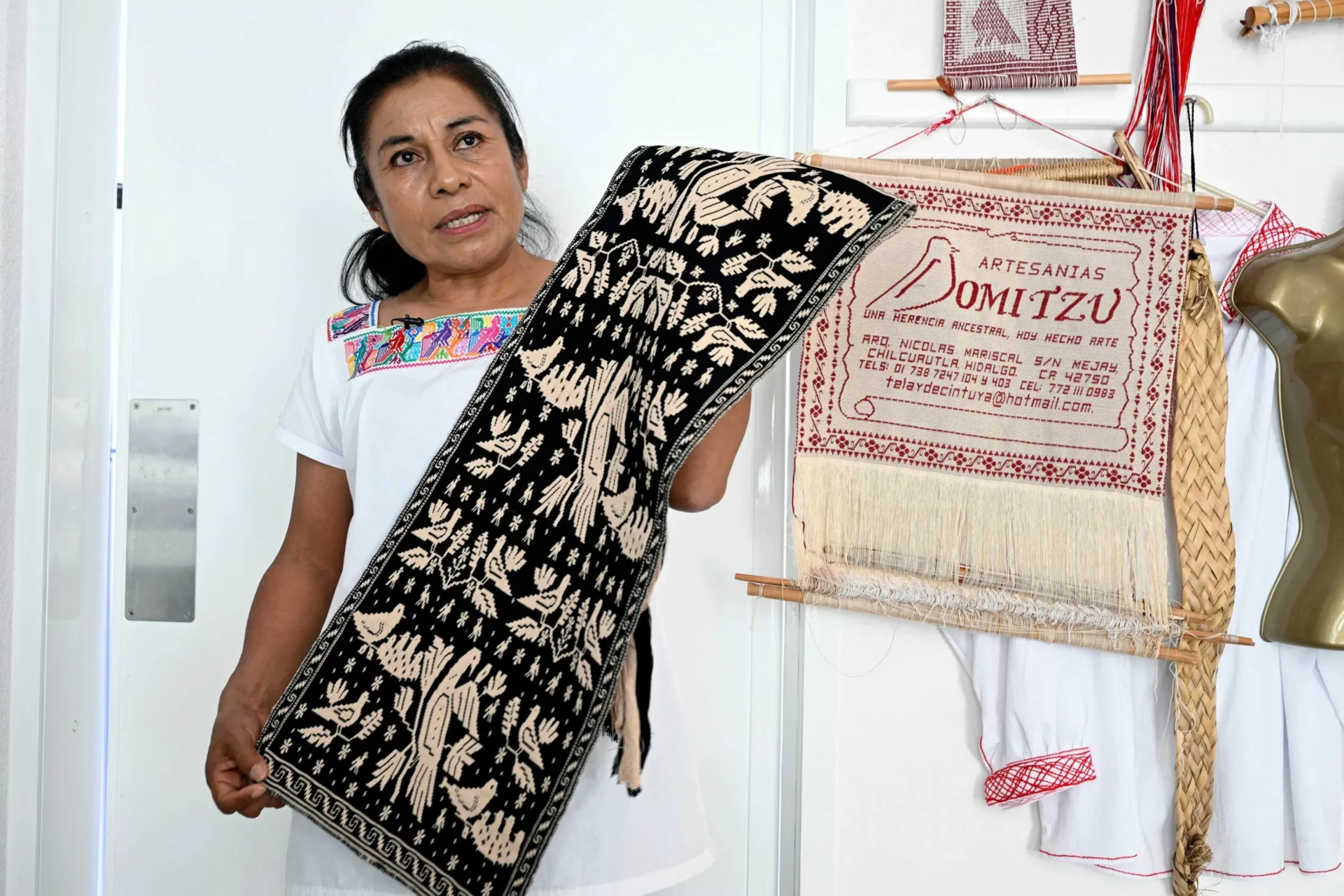For years, Mexico’s Indigenous weavers have been fighting for recognition and appreciation of their traditional craft. Despite being an integral part of Mexico’s cultural heritage, these talented artisans have often been overlooked and undervalued. However, with the upcoming presidential election, there is a glimmer of hope for these weavers as two women are leading the race and have promised to bring their creations to the forefront.
Mexico has a rich history of textile production, with Indigenous communities playing a significant role in preserving and passing down their weaving techniques from generation to generation. These weavers use traditional methods and materials, such as natural dyes and backstrap looms, to create intricate and vibrant designs that reflect their cultural identity and heritage.
Despite their undeniable talent and contribution to Mexico’s cultural landscape, these weavers have faced numerous challenges in gaining recognition and fair compensation for their work. Many have been forced to sell their products at low prices to middlemen, who then sell them at a higher price, leaving the weavers with little profit. This exploitation has led to economic struggles for these communities, making it difficult for them to sustain their craft and way of life.
However, the upcoming presidential election has brought a ray of hope for these weavers. Two women, María de Jesús Patricio Martínez and Margarita Zavala, are leading the race and have promised to support and promote the work of Indigenous weavers. María de Jesús Patricio Martínez, also known as Marichuy, is a Nahua Indigenous healer and activist who is running as an independent candidate. She has been a vocal advocate for the rights of Indigenous communities and has promised to prioritize their needs if elected. Margarita Zavala, a former first lady of Mexico, is also running as an independent candidate and has pledged to support and promote the work of Indigenous artisans.
The presence of these two women in the presidential race has brought renewed attention to the struggles faced by Indigenous weavers and their need for recognition and support. Both candidates have acknowledged the importance of preserving Mexico’s cultural heritage and have promised to work towards creating a fair and sustainable market for Indigenous weavers.
Their promises have been met with enthusiasm and hope from the Indigenous communities. For them, the recognition and support from the country’s leaders mean more than just economic benefits. It is a validation of their cultural identity and a step towards preserving their traditions for future generations.
The impact of these promises is already being felt in some parts of Mexico. In the state of Oaxaca, a group of Indigenous weavers has formed a cooperative called “Jolom Mayaetik” which means “weaving women” in the Tzotzil language. The cooperative has been successful in selling their products directly to consumers, eliminating the middlemen and ensuring fair compensation for their work. This has not only improved their economic situation but has also empowered these women to take control of their craft and preserve their cultural heritage.
The efforts of these two women have also brought attention to the need for government policies that protect and promote the work of Indigenous weavers. The Mexican government has taken steps towards this by implementing the “Marca Colectiva” or collective trademark, which allows Indigenous communities to register their designs and protect them from being copied or exploited by others.
The recognition and support from the presidential candidates have also sparked a renewed interest in traditional Mexican textiles. Many designers and fashion brands are now collaborating with Indigenous weavers to incorporate their designs into their collections. This not only provides a platform for these weavers to showcase their work but also brings their creations to a wider audience, both nationally and internationally.
In conclusion, the upcoming presidential election in Mexico has brought a glimmer of hope for the country’s Indigenous weavers. The promises made by the two leading women candidates have given these talented artisans the recognition and support they have long been fighting for. It is a step towards preserving Mexico’s rich cultural heritage and empowering Indigenous communities. Let us hope that these promises turn into actions, and the work of these weavers finally gets the recognition and appreciation it deserves.

